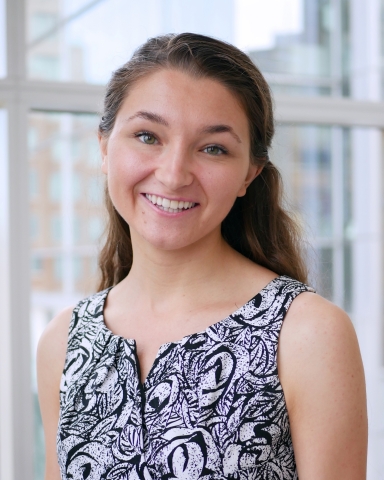Rachel E. Gray – ARCS-MWC Chapter Scholar
1st Year Scholar, Masters Student, Mechanical and Aerospace Engineering
George Washington University
Research:
Research uses modeling and optimization techniques to understand the impact of integrating renewable energy generation and storage technologies into urban communities. The results establish combinations of these technologies such that communities can improve the efficiency, reliability, resiliency, and cost of generating and distributing energy.
Describe the expected benefit of your research to society:
As population density in cities increases and the climate continues to change, the need for reliable energy will become paramount. This research addresses how various energy technologies can work together to provide efficient, cheap, and secure energy to communities. This research will provide a platform for community members to explore different combinations of energy generation and storage technologies such that they can support their energy needs. Further this platform will help communities to reach their net zero emission goals through understanding the impact of technology changes and providing the needed specifications to implement the changes.
Indicate how an ARCS award might benefit your research:
This award would allow me to develop deeper technical, professional, and interdisciplinary skills that I otherwise would not be able to obtain from my education. I would use the award to attend conferences, workshops, and symposia, join professional organizations, and obtain additional training and certifications. Some of these include memberships and conference participation in the Association of Energy Engineers, the International District Energy Association, and the American Association for the Advancement of Science, as well as the following certifications: Certified Energy Manager, Distributed Generation Certified Professional, and Building Energy Modeling Professional Certification. These activities will expand my expertise within my field, which will guide my research and allow for my research to have a greater impact on the community.
Career objectives:
Develop district energy system modeling techniques that allow for the analysis of whole cities with advanced energy systems, which will improve the current level of accuracy and ability to understand these systems.
Translate my research, and the research of others, into effective urban development and energy policies, aiding the improvement of community energy security and cost.
Create energy curricula for college students and interactive energy-informational resources for the general public that improve community energy literacy.

